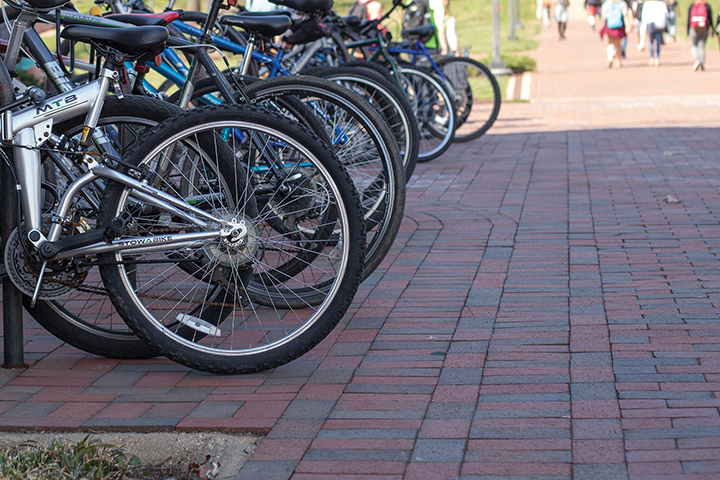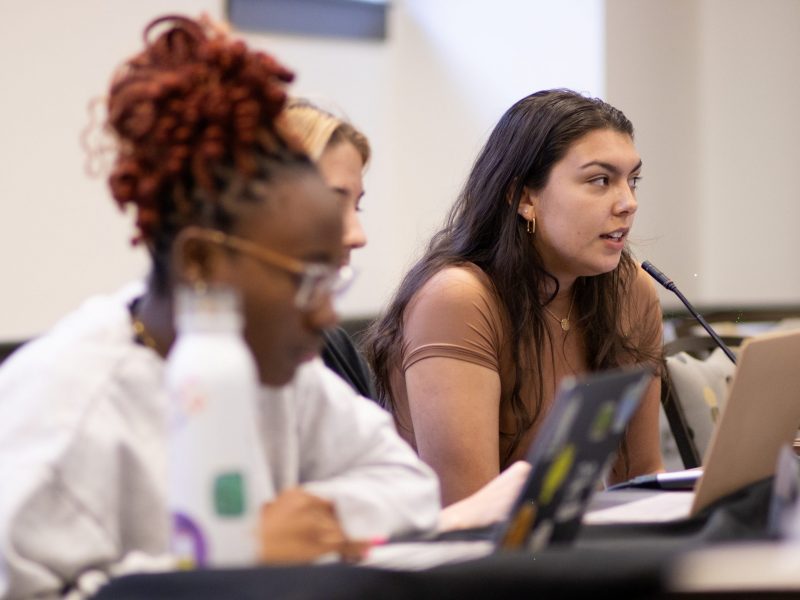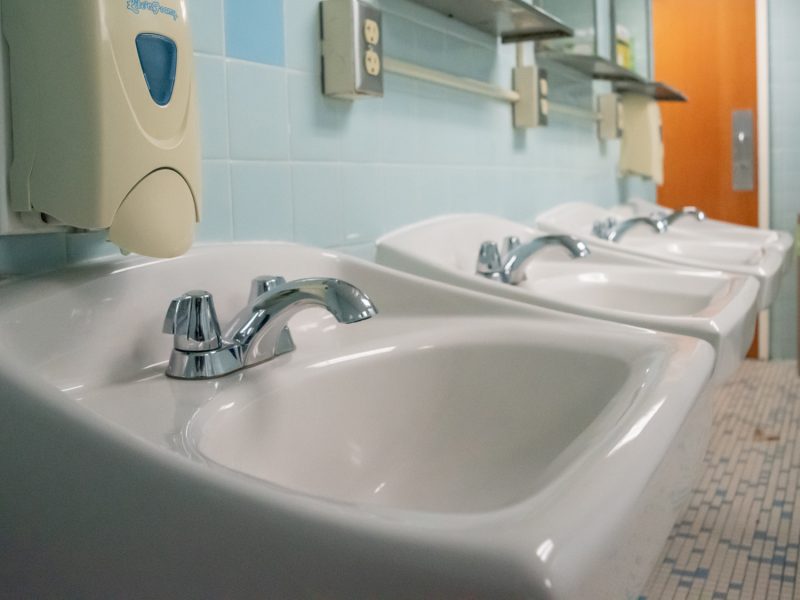The University of Maryland will lose a substantial number of parking spaces in the coming semesters, and though that means lost revenue for DOTS, the department is making sustainability a priority during this transition.
“Instead of driving, people could carpool and save a parking space,” said Anna McLaughlin, the Department of Transportation’s assistant director. “They save money, it opens up a little more parking, and it’s a win-win for everybody. I think as the larger construction projects happen, we are going to be doing a lot more marketing and outreach to talk to people — both students and employees — about their other alternatives from driving alone.”
DOTS has had several sustainability initiatives offered for “many many years,” McLaughlin said. One such example is offering a 50 percent discount off parking registration – in addition to access to preferred carpool parking spaces — for individuals who carpool to campus, according to DOTS’ annual report.
The report also highlights a 20 percent discount off parking registration for cars that meet specific EPA emissions criteria. University employees can also pay for transit costs through a pretax payroll deduction and potentially save hundreds of dollars a year. Additionally, employees who regularly carpool, vanpool, bike, walk or take transit to work can get a free and ride home when unexpected emergencies arise.
Sophomore computer science major Stephanie Whitridge said she thought offering discounts for carpooling and vehicles that have passed EPA emissions criteria were good ideas. Though she has a car on the campus, Whitridge said she hasn’t taken advantage of either program because she didn’t know about them.
“I wish I knew about it before,” Whitridge said. “I think they would be helpful, but I also think they should advertise it more because I had no idea about either of these things.”
There are 50 people receiving the carpool discount, 130 employees who use the “green vehicle” discount, 200 employees and graduate students enrolled in the pretax payroll deduction system and 67 employees registered for the guaranteed ride home program, McLaughlin said. However, since 2008, only three requests have been made for those rides, she noted.
“Historically, what we have found, like industry-wise, is that guaranteed-ride programs, while they have a high rate of sign up … the percentage of people who use it is very low,” McLaughlin said. “Rarely do people experience the situations where they would need to use it, so it really is just kind of like insurance.”
The program is backed by a regional ride-sharing, sustainable transportation program that partners with cab services and rental car centers to provide guaranteed rides to people in Maryland, Virginia and Washington.
Sally DeLeon, the project manager for this university’s Office of Sustainability, said her office supports DOTS in promoting these initiatives, but it doesn’t actively run anything. She noted that DOTS is an organization that doesn’t receive state funding, so the fact that it is providing sustainability measures is entirely its own prerogative.
In fact, she said, it’s a lot more risky for DOTS’ budget than it seems.
“When they give a 50 percent discount, they lose 50 percent of the revenue, so although I think they are very supportive of sustainability and they try to put it forward, they kind of have double pressures where they’re expected to make up that money somehow,” she said. “They’re operating in a very difficult situation there.”
Despite the loss in revenue that DOTS will likely face due to the decrease in parking spaces, McLaughlin said this could create a positive change for the campus in terms of sustainability.
“We don’t foresee any of our programs going away,” she said. “If anything, we will see them expanding and maybe even getting better. …Whether it’s carpooling or vanpooling or choosing transit, hopefully we will see all of these things increase, which will make the parking loss not have as much of an impact.”



